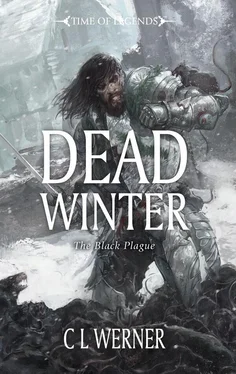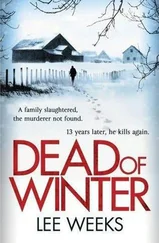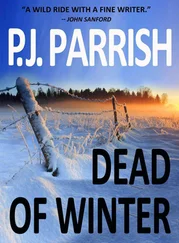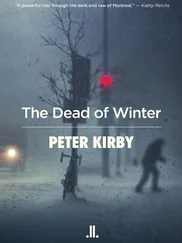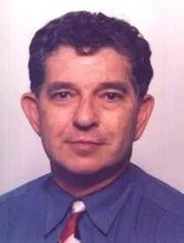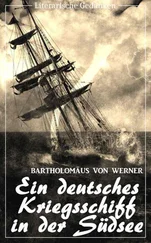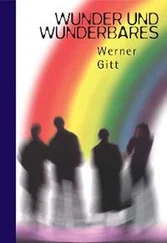C. Werner - Dead Winter
Здесь есть возможность читать онлайн «C. Werner - Dead Winter» весь текст электронной книги совершенно бесплатно (целиком полную версию без сокращений). В некоторых случаях можно слушать аудио, скачать через торрент в формате fb2 и присутствует краткое содержание. Год выпуска: 2012, ISBN: 2012, Издательство: Games Workshop, Жанр: Фэнтези, на английском языке. Описание произведения, (предисловие) а так же отзывы посетителей доступны на портале библиотеки ЛибКат.
- Название:Dead Winter
- Автор:
- Издательство:Games Workshop
- Жанр:
- Год:2012
- ISBN:9781849701518
- Рейтинг книги:4 / 5. Голосов: 1
-
Избранное:Добавить в избранное
- Отзывы:
-
Ваша оценка:
- 80
- 1
- 2
- 3
- 4
- 5
Dead Winter: краткое содержание, описание и аннотация
Предлагаем к чтению аннотацию, описание, краткое содержание или предисловие (зависит от того, что написал сам автор книги «Dead Winter»). Если вы не нашли необходимую информацию о книге — напишите в комментариях, мы постараемся отыскать её.
Dead Winter — читать онлайн бесплатно полную книгу (весь текст) целиком
Ниже представлен текст книги, разбитый по страницам. Система сохранения места последней прочитанной страницы, позволяет с удобством читать онлайн бесплатно книгу «Dead Winter», без необходимости каждый раз заново искать на чём Вы остановились. Поставьте закладку, и сможете в любой момент перейти на страницу, на которой закончили чтение.
Интервал:
Закладка:
The Bread Marchers. Von Schomberg could understand what the Emperor wanted with them now. Each Bread Marcher was a displaced soldier, one less sword in the arsenals of the other provinces. But his scheming went still deeper. Drawing the desperate men to Altdorf, to the Imperial capital, Boris intended to exploit them still further. He was deliberately allowing the shantytowns to grow. He was encouraging the despair and lawlessness taking hold of the city.
When the time came, when Boris was certain the size and scope of the thing would be unmistakable, then he would act. He would send out his soldiers to put down the rioters. The streets of Altdorf would run red with blood, the blood of valiant men who only months before had fought for the same Empire which would cause their doom. Afterwards, the bloodshed would be enough to silence the Emperor’s critics. He would have all the justification he needed to exempt the Imperial Army, Altdorf and perhaps even the Reikland itself from the head tax on their Dientsleute .
Von Schomberg turned away from the parapet. ‘The Emperor will act,’ he assured Erich. ‘He will act when there is no other choice but violence so that none can gainsay him. He will call out his Kaiserjaeger and his Reiksknecht and send them out to ride down starving men.’
Erich’s expression sickened at the image the Grand Master conjured. ‘Surely it won’t come to that! Knights don’t ride down defenceless men!’
Von Schomberg locked the young captain’s eyes in a cold stare. ‘We have guaranteed our honour through service to the emperor. Every knight of the Reiksknecht is sworn to obey the emperor without question and Boris is our Emperor. If he calls upon us to ride down the Bread Marchers, then that is what we will do!’
‘It will mean a massacre,’ Erich stated, shaking his head in disgust.
‘Yes,’ von Schomberg said, turning away to resume his walk along the battlements.
‘It will mean a massacre.’
Bylorhof
Kaldezeit, 1111
Shouts and howls resounded through the town. Peasants thronged the streets, gathered together to watch the macabre procession creeping through Bylorhof. Twenty men, their naked bodies glistening with sweat and blood, struggled through the muddy lanes. Before them they pushed a hideous altar mounted upon the bed of a wagon. It was a ghastly, semi-human effigy, the eidolon of Bylorak. The marsh god’s statue was a monstrous thing carved from green stone, a squat, broad-shouldered man-like thing with a gaping, toadlike mouth and a single hideous eye set into its forehead. Marsh reeds formed the eidolon’s hair and swamp moss served it for a beard. In its left hand it held a fish. In its right, a human skull.
The men pushing the idol through the streets weren’t part of Bylorak’s priesthood. Most of the under-priests were dead and the chief priest had fled to a hermitage somewhere in the marsh, abandoning his temple. In his absence, fanatics of the ancient religion had taken it upon themselves to act. They had broken down the doors of the temple and stolen the image of their god, that Bylorak might witness the devotion and faith of his disciples.
Through the streets the procession crept. At every sixth step, the men pushing the idol would stop. Crying the name of their god to the heavens, they would lash themselves viciously with scourges. The whips ripped at their flesh, spattering the street with blood. After some minutes, the flagellants would stop and resume their march through the town.
Frederick van Hal watched the procession with a feeling of horror. Some of the flagellants were men he knew, pillars of the community. Terror of the plague had driven them into the madness of fanaticism. Viewing the gods of the Empire as weak and impotent, they had turned back to the old gods of the Fennones. The Black Plague had brought a second disease to Sylvania. A plague of unbelief.
The priest of Morr could almost sympathise with the desperation of the peasants. They had watched their priests and priestesses die all around them, unable to stop the plague, unable to bring the beneficence of the gods to the stricken community. If Shallya and Morr would not protect their own servants, then what hope was there for a simple commoner?
Such was the attitude of the laity, but to a clergyman, things were not so simple. Frederick understood that the gods worked through faith, that at those times when all hope was lost was when it was most important to cling to faith. The gods tested men, tested the strength of their will and determination, for only through ordeal could the true quality of man be revealed.
The priest pulled his robe tighter about his chest as a chill swept through his body. Such were the ways of benevolent gods, but there were other gods as well, gods of such malevolence as to make the cyclopean Bylorak seem beneficent and kindly. These gods were ancient and utterly malignant, daemonic things lurking just beyond the light, forever straining to cast down the world of men. Frederick had learned much of such gods when he had studied in the great librarium of the temple in Luccini, eldest of Morr’s temples in the Old World.
He had learned more when he assumed the duties of high priest at the Bylorhof temple. There was a reason he had been chosen for that duty, why the lectors decided to install an outsider to this temple. The old priest, a Sylvanian, had been removed for practising the most obscene heresies. He and all his possessions had been consigned to flame, his very name purged from the temple records. The selection of a Westerlander to replace the apostate was to be a declaration that the previous infamy had been scoured from the temple.
It hadn’t, of course. The peasants still looked upon the temple of Morr with horror and made the signs of other gods when they passed Frederick in the street. The temple of Bylorak had revived the old rites, disposing of the dead in the mire of the marsh so that none need pass beneath the gateway of Morr’s garden. Baron von Rittendahl’s wife, upon her passing, had been interred within the castle crypt without ceremony, the infamy of Frederick’s predecessor making it impossible for von Rittendahl to have a Morrite ritual — if he even wanted one.
Father Arisztid Olt had left an indelible legacy behind him… and more. When the Black Guard had come for the apostate and consigned him to the pyre, they had missed the most prized of the heretic’s possessions. Beneath the temple, in the oldest crypts, Olt had maintained a secret library — a collection of forbidden tomes and occult grimoires that eclipsed even the Luccini temple’s collection of arcane lore.
A dream had led Frederick to the hidden library. Morr was god of sleep as well as death and employed dreams to guide his servants. It was a sacrilege for a priest of Morr to ignore any dream. When Frederick’s dream showed him the old crypt and the secret door, he had taken it as a sign from his god. When he descended into the crypt, he found everything as it had been in his dream. When he followed the winding marble corridors, he followed in the steps of his dream-self. When he reached up to brush the beak of the obsidian raven carved into the face of a pillar, he could see the spectral hand of his dream-self. When the entire pillar sank into the floor, exposing a hidden doorway, Frederick knew what he would find.
It had been ten years since that discovery. It was the reason Frederick appreciated the spiritual doubts and fears of the peasants, but it also gave him an understanding of the folly to which such doubt and fear could lead. The gods could fail men, but men could also fail their gods. Evil times need not be a token of good gods, but a sending of evil ones to tempt men into the clutches of Old Night.
Frederick stirred from his recollections, staring with rising anger as he watched the flagellants lash themselves, as he noted the rapt fascination, the hopeful desperation of the spectators. Bylorak was an abomination, a relic of days when men crawled before inhuman masters. There was no salvation to be found by grovelling before the marsh god, only a path to depravity and destruction. Better to perish of the plague than live in such obscenity!
Читать дальшеИнтервал:
Закладка:
Похожие книги на «Dead Winter»
Представляем Вашему вниманию похожие книги на «Dead Winter» списком для выбора. Мы отобрали схожую по названию и смыслу литературу в надежде предоставить читателям больше вариантов отыскать новые, интересные, ещё непрочитанные произведения.
Обсуждение, отзывы о книге «Dead Winter» и просто собственные мнения читателей. Оставьте ваши комментарии, напишите, что Вы думаете о произведении, его смысле или главных героях. Укажите что конкретно понравилось, а что нет, и почему Вы так считаете.
